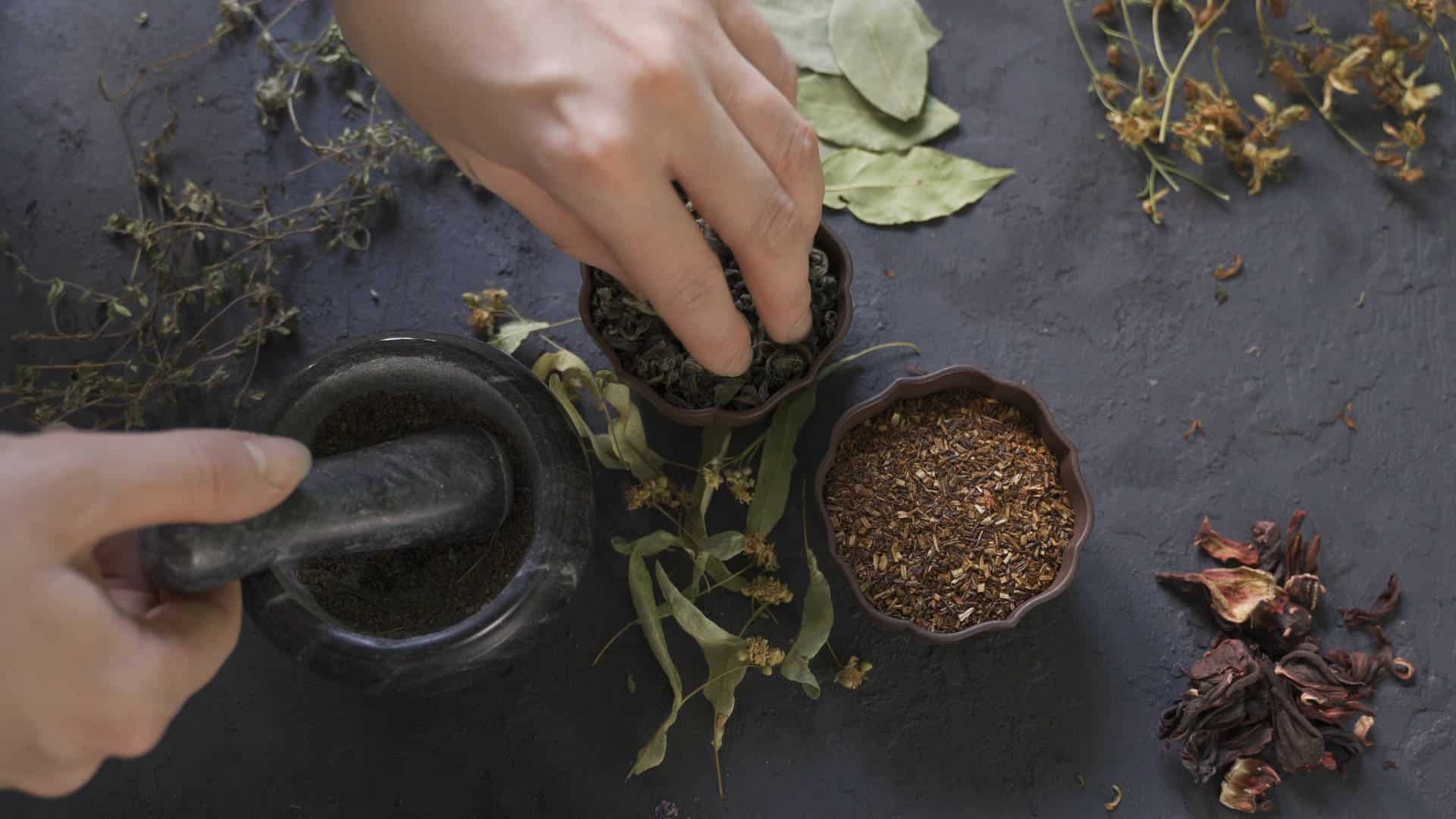I took sleeping pills every night for months after my son, Finlay, died inexplicably during childbirth in June 2014. The pills did their job. They knocked me out so that I could get the rest that my body desperately needed to recover from 22+ hours of active labor, an unexpected Cesarean surgery, and the acute anguish that accompanied the grief I bore for my beloved child. Looking back, though, I wish that I had known something about herbal medicine. I would have preferred relying less on pharmaceuticals and more on the healing wisdom of plants and the people who have used them for millennia.
Even before beginning a two-year herbalism program, I began an independent study of herbs traditionally used for grieving and healing. Consulting books, online articles, and podcasts, I charted the herbs that stood apart as healing aids for our mental, emotional, and physical states during heartache and bereavement. I experimented with my own grief tea blends, herb-infused honeys, and grief bitters to bring these healers into my home. I found this research and experimentation to be a wonderful supplement to the various forms of self-care that I was practicing, including acupuncture, yoga, talk therapy, writing, and Reiki.
While there are many herbs, not to mention flower essences, that might serve you in a time of deep grief, sudden loss, or extended sorrow, I highlight a few plant allies here, hoping that this brief exploration through a vast botanical world inspires you to learn more. I encourage you to do your own research and to consult with medical professionals, especially if you are pregnant or taking prescription medications.
-
Hawthorn (Crataegus spp.)
Hawthorn is a cardiovascular powerhouse; it has been shown to lower cholesterol levels and high blood pressure (Wood, 2008). And why is this beneficial for grief? Maria Noël Groves (2016) notes that the heart is “a primary seat of emotion (as are the lungs and belly). When you experience immense grief, your heart breaks. […] And when you’re snuggled up in peace and love, those feelings radiate from your heart” (217). A member of the Rose family, hawthorn surfaces as a primo healer of heartache and grief. You can use its berries, flowers, and leaves to make teas, infused honeys, and elixirs.
-
Rose (Rosa spp.)
“Long used to comfort and calm the heart, rose’s gentle antidepressant and sedative properties can help uplift the emotions while providing a sense of ease” (Justus, 2015). Rose supports nervous and digestive systems, cooling the heat of anger and inflammation. A heart tonic, rose inspires self-love, deepens our relationship with others, and heals ancient wounds (Bennett, 2014). Rose petals, rosebuds, rosehips, and its leaves are all medicinal. Try infusing rose as a tea or in honey or wine or use it to make a glycerite or bath blend. (A note of caution: only use roses that you know have not been sprayed with pesticides)
-
Motherwort (Leonurus cardiaca)
Though its bitter compounds make it a less tasty herbal ally, motherwort is a potent support for cardiovascular and nervous systems. According to Juliet Blankespoor (n.d.), motherwort is “a highly versatile medicinal. It is one of my favorite remedies for anxiety and stress.” Some herbalists find that it has an affinity for mothers. So those who have lost a mother (or maternal figure) or a mother who has lost a child might find the leaves and flowers of this lion-hearted plant to be especially helpful. Its leaves and flowers can be transformed into a tincture or bitters. As a tea, you may wish to blend in some sweeter tasting herbs.
-
Linden (Tilia spp.)
Cooling and moistening, linden leaves and flowers enjoy a widespread “reputation as a calming heart tonic [… It] is rich in antioxidant compounds that seem to quell hypertension, especially when stress is a contributing factor” (Groves, 2016, 158). From the bodily level to the spiritual realm, linden may act as a “protective, comforting, and magical guide through times of grief” (Bennett, 2014, 28). Delicious as a cold infusion (which increases its moistening power), linden is delightful as tea on its own or combined with other healing herbs.
-
Mimosa (Albizia julibrissin)
Western and Traditional Chinese Medicine herbalists use the flowers and the bark of this “tree of happiness” to assist those suffering from depression, loss, heartache, and grief. Jon Keyes (2017) considers mimosa “an herb that is highly undervalued, especially for helping people improve emotional wellbeing. […] I notice its subtle qualities of bringing greater peace and wellbeing, a feeling of being grounded and stronger.” Use mimosa to make a tea, tincture, infused honey, syrup, or glycerite.
-
Tulsi (Ocimum tenuiflorum)
Revered throughout India for its physical and spiritual properties, tulsi, or Holy basil, “has a long history of being used to increase energy, vitality and as an herb for longevity and wellbeing” (Gladstar, 2017). Groves notes that it “helps us feel less hopeless and more in tune with the world around us” (2016, 53). A member of the Mint family, tulsi supports digestive, immune, nervous, and cardiovascular systems. Tulsi’s leaves and flowers are commonly drunk as a tea, though they can be prepared as a tincture, as pesto (using fresh leaves), or as an infused oil, vinegar, or ghee.
As many of us who have experienced deep grief and/or who support others through grieving know, we live in a medicalized society that readily characterizes grief and bereavement as a condition from which one should “recover.” I believe that creative and active engagement with grief, in collaboration with the wisdom of the natural world, can help to bolster our intuition, strengthen our bodies, and heal our hearts.
————————————-
Herbs for Grief & Emotional Healing References & Resources
Bennett, Robin Rose. (2014). The Gift of Healing Herbs: Plant Medicines and Healing Remedies for a Vibrantly Healthy Life. Berkeley, CA: North Atlantic Books.
Blankespoor, Juliet. (n.d.). The Top Ten Medicinal Herbs for the Garden. Retrieved from https://chestnutherbs.com/the-top-ten-medicinal-herbs-for-the-garden/
Gladstar, Rosemary. (2017, February). Herbs for Natural Energy & Vitality: The Amazing Adaptogens. Retrieved from https://www.sagemountain.com/wp-content/uploads/2017/02/Notes-Natural-Energy-Vitality-.pdf
Groves, Maria Noel. (2016). Body in Balance: An Herbal Guide to Holistic Self-Care. North Adams, MA: Storey Publishing.
Justus, Angela. (2015, July 30). A Family Herb: The Comforts of Rose. Retrieved from https://theherbalacademy.com/a-family-herb-the-comforts-of-rose/
Keyes, Jon. (2017, December 13). Mimosa—The Happiness Tree. Retrieved from http://www.hearthsidehealing.com/mimosa-the-happiness-tree/
Wood, Matthew. (2008). The Earthwise Herbal (Vol. 1). Berkeley, CA: North Atlantic Books.


